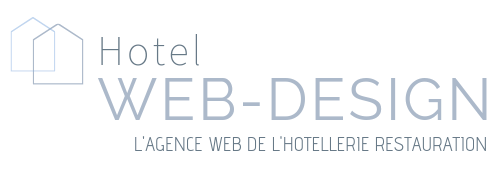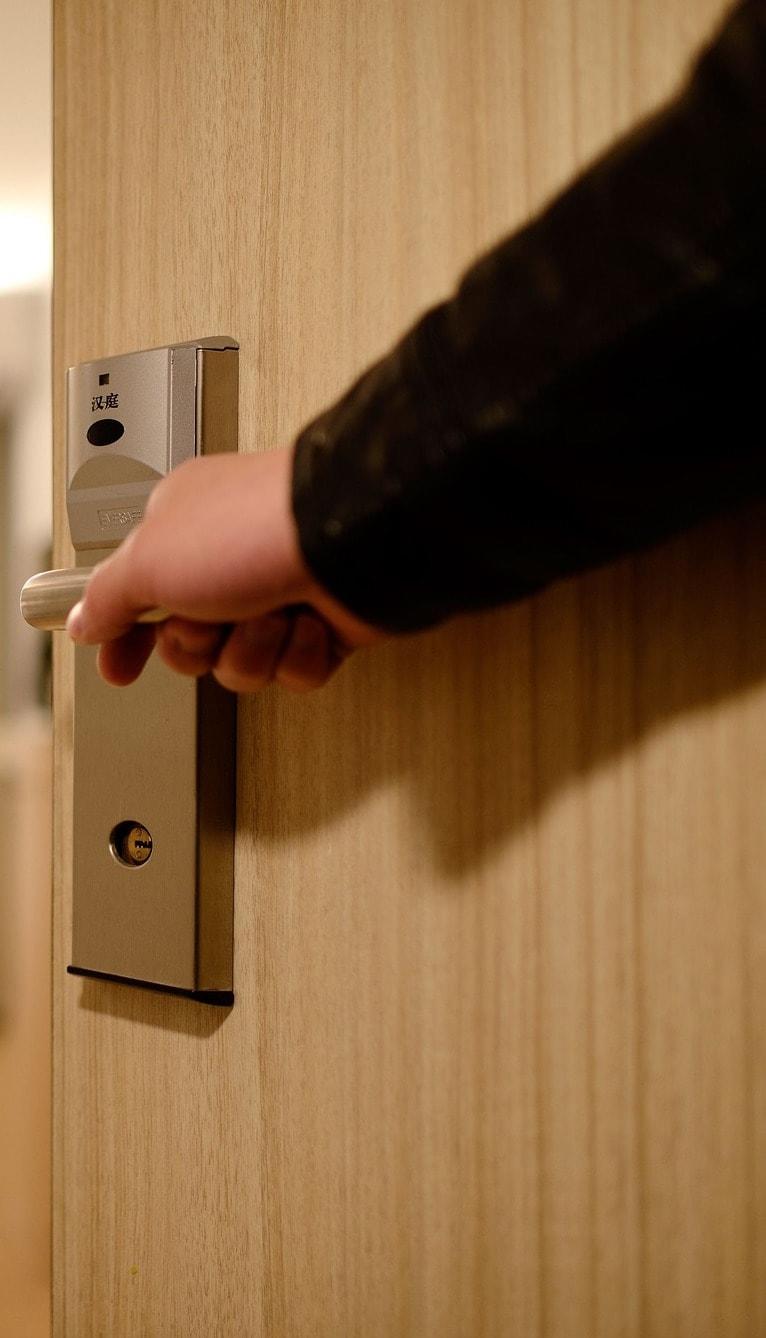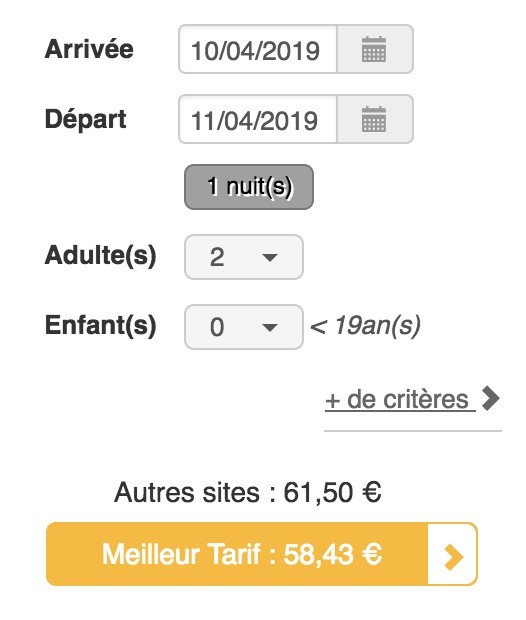
Webmarketing guide for hotels, bed and breakfasts, gites or restaurants
Following the dramatic arrival of OTAs on the hotel and restaurant market in recent years, we have designed this short guide to help independent hotel managers maximise their visibility on the Internet and their ROI by undertaking a series of actions described below.
Define your product and identify its benefits
Observing and getting to know your competitors
Getting to know your customers
Integrate appropriate tools to convert customers directly
Encouraging travellers to share their experience
Define your product and identify its benefits.
First of all, you need to ask yourself a few questions. It goes without saying that a B&B manager will not be able to promote his establishment in the same way as a large hotel manager.
What are the overall and detailed characteristics of your product? Are these characteristics that you define in line with your customers' point of view? In other words, ask the question in reverse and obtain a more objective opinion: why do your customers book with you? The use of an end-of-stay satisfaction questionnaire in the rooms or at the hotel reception desk has proved its worth. It allows you to obtain feedback on your customers' experience (which is often more sincere than a "face-to-face" opinion), but also to show them that their opinion is important to you and thus reinforce their choice.


Observing and getting to know your competitors
We often think we know them, but competitors can often take many different and unexpected forms. Have you thought about the discreet B&B around the corner? Have you checked the rates charged by the bed and breakfast opposite? Competitive advantages are not always found where you expect them. It can be anything from parking (even for a fee) to a seminar room.
Specialist platforms with which you are familiar can help you make a relatively effective assessment of the attractiveness and capabilities of your competitors.
- Trip Advisor is a very effective site for making a general survey of what's on offer in your area. You may think what you like about the content, but the site nevertheless has the virtue of providing a fairly exhaustive list of your competitors in the area. Trip Advisor is therefore of considerable help in quantitative terms.
- Booking.com, a platform that only allows travellers who have actually booked a stay to leave a comment after their departure, is much more reliable in terms of quality. All you have to do is read the comments to identify your competitors' strengths, as seen by travellers. The comments on this site are generally considered reliable and can be cross-referenced with other 'trusted' platforms (Expedia, Customer Alliance...) to get a solid idea.
Getting to know your customers
To position yourself correctly, it is essential to ask yourself the right questions about the habits of customers of tourism organisations such as hotels, restaurants, bed and breakfasts or gîtes. The behaviour and profiles of Internet users have changed a great deal over the last few years, as they have come to book rooms online. To keep abreast of these new trends, it's a good idea to consult the many public studies on the subject. These are available from national public bodies (INSEE(for example), but also on government websites and with local organisations that are closer to your end customers (tourist offices, departmental committees, specialist blogs, etc.).
It will be interesting to carry out a more specific study with the QQOQCCP method (who, what, where, when, how, how much, why). This is still the most effective way of getting to the heart of the matter and gaining a precise idea of the behaviour of your customers, specific to your tourist and geographical sector.
- Who: Which customer? Age, gender, nationality, CSP ...
- Which holiday? For which stay? Budget, long term, business, leisure, visiting...
- Where: where does your customer come from and where is he going, if your establishment is not his final destination?
- When can I book? When is the reservation made? How far in advance?
- How: How does your customer book? OTA, direct booking, telephone, contact form...
- How much: What is the average and median budget? Is there a standard budget?
- Why should they? Why does your customer come to you and not to a competitor?


Integrate the right tools to convert customers directly
While generating traffic on your hotel website is a good thing, converting the customer directly is the crowning glory of the strategy you have put in place. Most of the booking engines available on the market today offer "modules", or " widgets "This is an example of the price comparison module from our partner Reservit, which we integrate into our customers' websites. On the left is an example of our partner Reservit's price comparison module, which we integrate into our customers' websites. We also offer low-commission booking engines.
So it's important to find out about the modules available and to choose a tool that is intuitive and secure. We would be delighted to tell you more
Encouraging travellers to share their experience
Whether we agree with it or not, the Internet customer appreciates the reviews left by previous travellers. It's a tricky question, given the problem of fake reviews circulating on the web, but one thing is certain: the interested customer is much more inclined to finalise their decision if they first consult a positive review of the hotel. These reviews act as personal recommendations, close to word of mouth, and are convincing.
Hoteliers are sometimes reluctant to do this - for understandable reasons - but if they are to build up the credibility they need on the Internet, they need to have both a good reputation and a good reputation. quantity of opinions (more opinions = more credibility), but also of the quality and frequency in the flow of notices submitted online
Our fourth piece of advice is undoubtedly to ask your satisfied customers, by means of an individual questionnaire or verbally, to leave a review of their experience in your establishment on the dedicated portals. The very fact of asking systematically by asking your customers to leave a review, you will not only increase your credibility (quantity) but also your satisfaction rate (by appealing to the "silent mass" of satisfied customers who generally won't take the initiative of leaving a review). There are a number of companies specialising in this field that can help you, such as Customer Alliance or even Trust you. It is of course necessary to register beforehand with as many review portals as possible, which generally target a particular geographical clientele. (Zoover targets the Dutch, while Holiday-check is the reference for Germans. The giant Trip Advisor targets a wider audience). Our web agency for the hotel & tourism industry offers a support on social networks, including the meticulous registration of your establishment on all these major portals.




